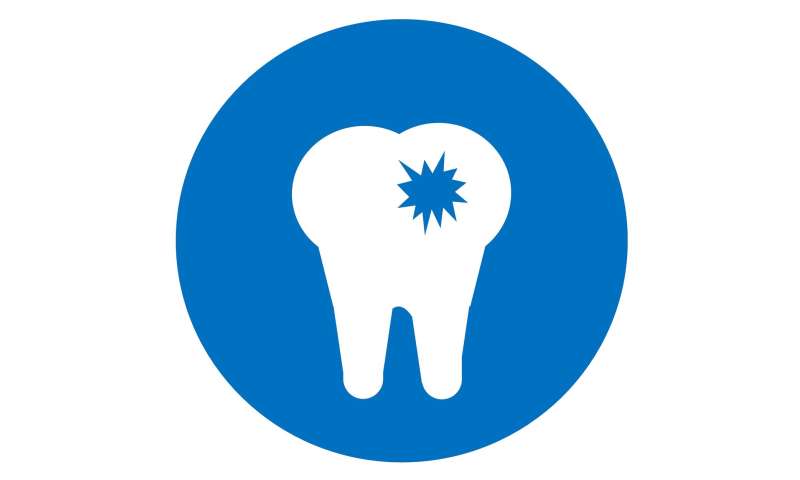New ‘tooth-on-a-chip’ could lead to more personalized dentistry

A so-called "tooth-on-a-chip" could one day enable more personalized dentistry, giving dentists the ability to identify dental filling materials that work better and last longer based on a patient's own teeth and oral microbiome.
The miniaturized tooth system is a thin slice of a human molar placed in between transparent rubber slides that are etched with tiny channels, through which fluids flow. The research device mimics a real tooth with a cavity, which allows fluids and bacteria to move between the cavity opening and the inner tooth. Scientists use a microscope to observe the tooth as it interacts with materials and bacteria.
While other mini organs such as livers and lungs have been placed on chips like this for research purposes, this is the first time an organ-on-a-chip system has been created for dental research, reports a paper published in the Royal Society of Chemistry journal Lab on a Chip.
"Today's cavity fillings don't work as well as they should. They last for five, seven years on average, and then they break off," said the paper's corresponding author, Luiz E. Bertassoni, D.D.S., Ph.D., associate professor of restorative dentistry in the OHSU School of Dentistry and biomedical engineering in the OHSU School of Medicine.
"They don't work because we haven't been able to figure out what's happening at the interface of the tooth and the filling," Bertassoni continued. "This device can help address that by giving us a close-up view of what's happening there in real time. Years from now, dentists could extract a tooth from a patient, load it into this device, observe how a dental filling material interacts with the tooth, and pick a material that's best for that particular patient."
The device is designed to help scientists better understand the innerworkings of dental cells in their natural environment. For example, researchers could use the tooth-on-a-chip to better understand how teeth form and how they respond biologically to all sorts of injuries and treatments.
"It opens up a new window into the complexity of dental care that could change the way we do dentistry quite significantly," Bertassoni said.









